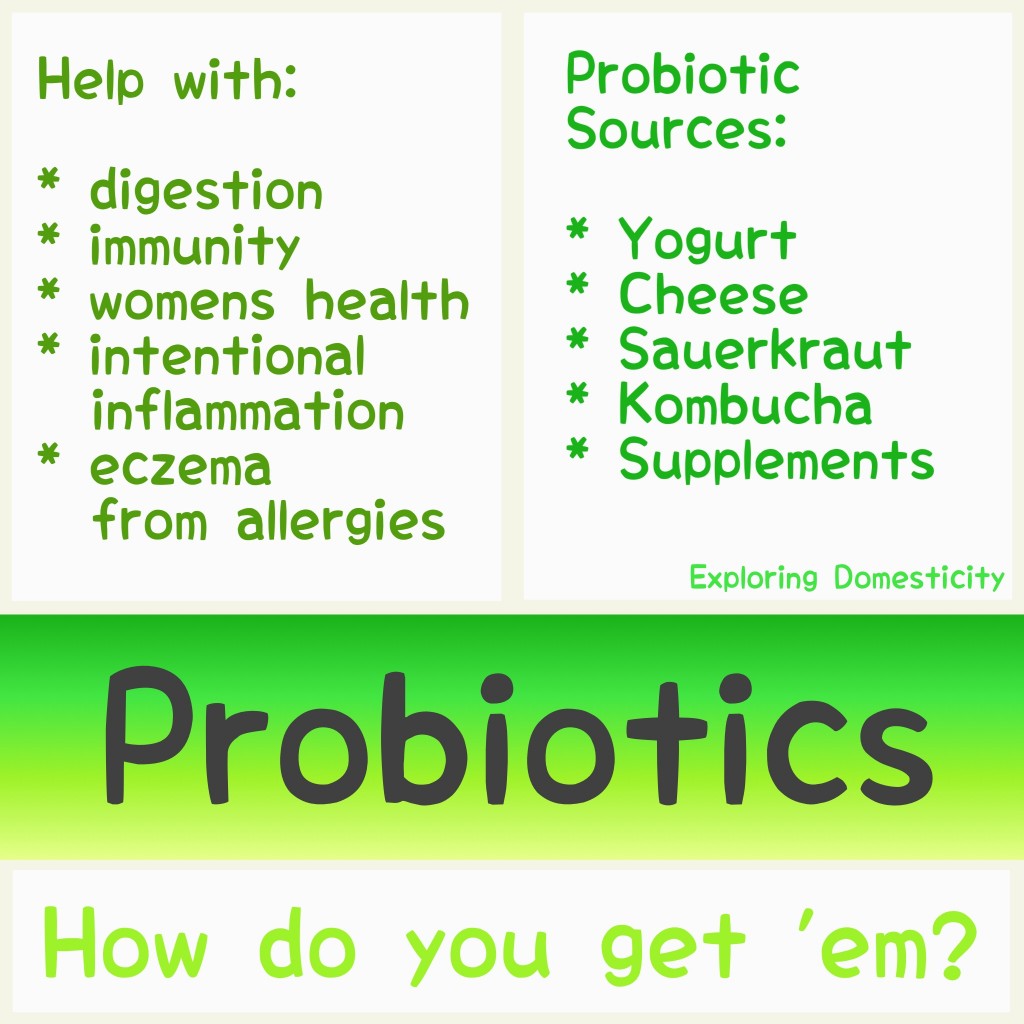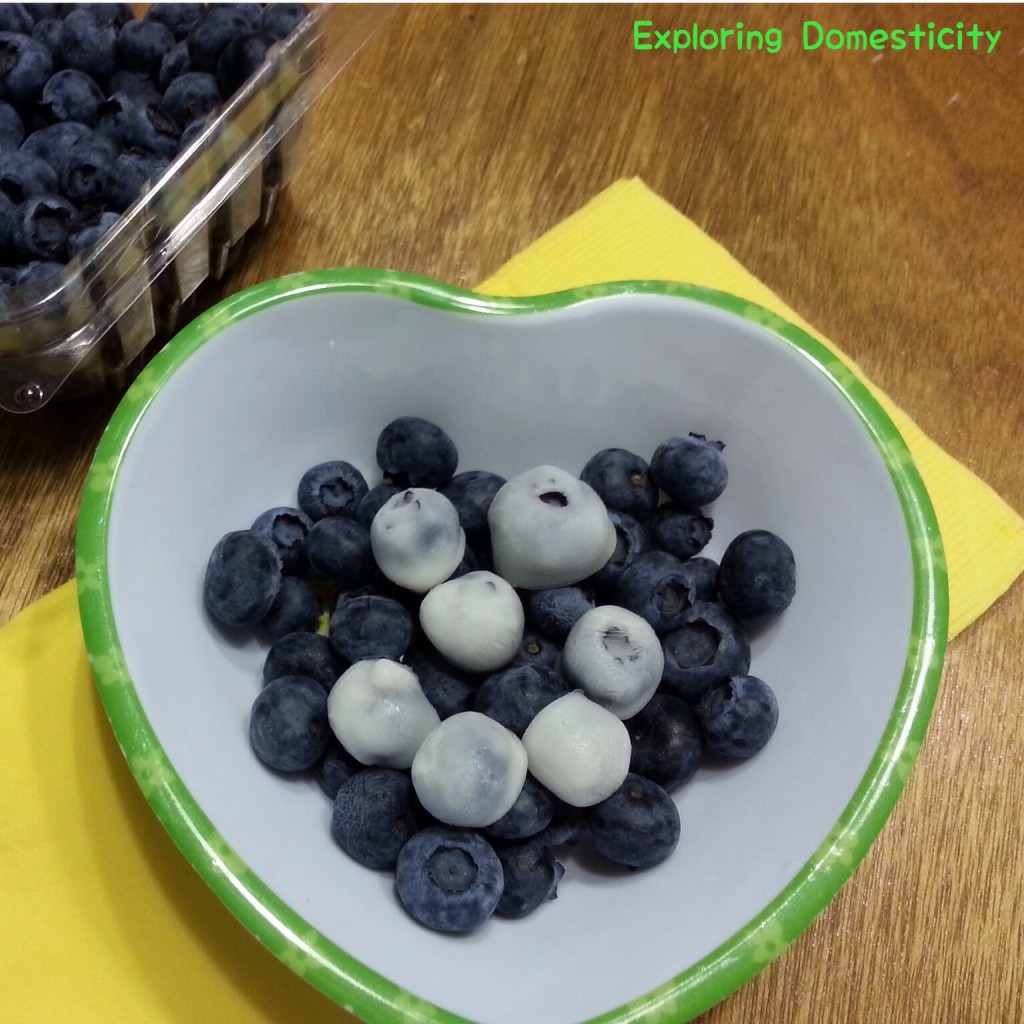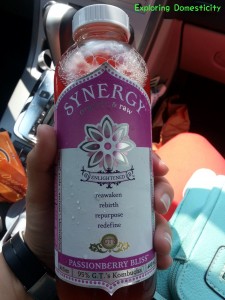I was approached by Quality Blue Publishing and ProbioSlim to share my thoughts on probiotics, which was great timing since I had been meaning to spend a little time on this topic anyhow. Accordingly, all thoughts are 100% my own!
I have been hearing about Probiotics for a while now. Until recently, it was just something I heard was good for me, knew that many people I look up to for health advice took them, but had not looked into much myself. I had a vague understanding that they promote digestive health and give you a bit more defense against illness.
According to the Food and Agriculture Organization of the United Nations, “probiotics are live micro-organisms which, when administered in adequate amounts, confer a health benefit on the host.”

Probiotics replenish GOOD bacteria in your body and restore balance. This can have positive effects on:
- Boosting Immunity
- Digestive Health
- Women’s Health Issues
- Treating and preventing eczema related to cow’s milk allergies
- Treating antibiotic-associated and infectious diarrhea
- Treating/preventing inflammation or infection of the intestines
There are many ways to get your probiotics. Fermented foods are the most natural form, but supplements may also be a good option. When choosing foods, look for terms such as “raw,” “lacto-fermented,” or “unpasteurized” since these indicate the live cultures haven’t been killed off in the manufacturing process, as in foods that contain terms like, “fortified.”
5 Ways to Get Your Probiotics
1. Yogurt
This is one of the most common sources for probiotics. You can’t see a yogurt commercial without hearing the word “Probiotic”. A similar probiotic source would be Kefir, made from adding Kefir grains to milk.
Good news! After a little research, it looks like yogurt or kefir that has been frozen, as in the yogurt-covered blueberries above, will still hold on to the healthy probiotics and provide you with the same benefits. So, have fun with it! Get those foods in and make them something you want to eat!
2. Cheese
Certain soft cheeses such as Gouda, cheddar, Swiss, or Parmesan, and even some cottage cheese contain probiotics and are a great way to work them into your diet.
3. Sauerkraut
As long as you make sure to choose raw, unpasteurized sauerkraut you will get all sorts of awesome probiotic benefits from this food. Other similar probiotic sources: Kimchi, which is also from cabbage, Miso and Tempeh from soybeans.
4. Kombucha
This is my new favorite thing! I’ve only tried Kombucha – made from fermented sweet black tea – recently but it is fantastic! It’s a little crazy to see all the live cultures settling at the bottom, but the taste is worth it. Love it!
5. Supplements
Supplements, such as ProbioSlim, are one of the easiest ways to get your probiotics. Probiotic supplements are not regulated by the FDA, so you should research and chose the one that is the best for for you. You can look at your local GNC or go to Http://ProbioSlim.com to see if ProbioSlim is a good fit for you.
When I was approached to explore Probiotics a bit more I was more than happy to, since it was on my To-Do list anyway. Normally I would not promote a product that I have not tried myself. However, even if I had tried the product, I am not an expert and would hope you would make your own informed decision or consult a doctor. In the case of Probiotics, I can only tell you what I have learned from my brief research (which began before being approached by Quality Blue and ProbioSlim), and my trying the product would only give extra information about how my body personally reacted to it. Everyone is different, so consult the professionals in your life and make an informed decision about your own body and what goes into it.
Do you take a probiotic supplement, or do you prefer to get them from foods?
Sources
http://www.onhealth.com/probiotics/article.htm
http://www.webmd.com/digestive-disorders/features/what-are-probiotics
http://www.health.harvard.edu/fhg/updates/update0905c.shtml
http://www.doctoroz.com/videos/fact-sheet-probiotics
http://www.huffingtonpost.com/2012/05/15/probiotic-remedies_n_1507166.html?ref=topbar#s=more22572
http://foodmatters.tv/articles-1/6-healing-benefits-of-probiotics



















